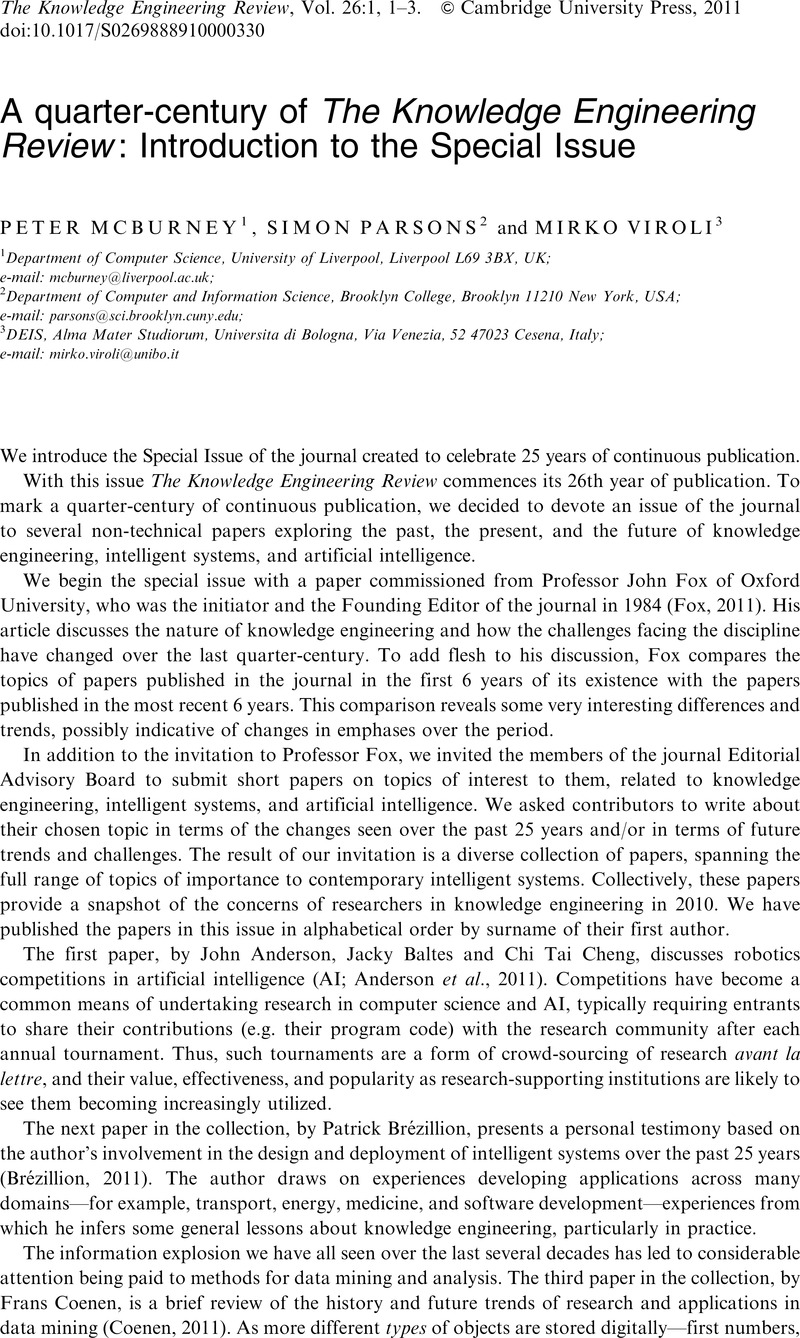No CrossRef data available.
Article contents
A quarter-century of The Knowledge Engineering Review: Introduction to the Special Issue
Published online by Cambridge University Press: 07 February 2011
Abstract
An abstract is not available for this content so a preview has been provided. Please use the Get access link above for information on how to access this content.

- Type
- Articles
- Information
- The Knowledge Engineering Review , Volume 26 , Special Issue 1: 25th Anniversary Issue , 07 February 2011 , pp. 1 - 3
- Copyright
- Copyright © Cambridge University Press 2011
References
Anderson, J., Baltes, J., Cheng, C. T. 2011. Robotics competitions as benchmarks for AI research. The Knowledge Engineering Review 26(1), 11–17.CrossRefGoogle Scholar
Brézillion, P. 2011. From expert systems to context-based intelligent assistant systems: a testimony. The Knowledge Engineering Review 26(1), 19–24.CrossRefGoogle Scholar
Coenen, F. 2011. Data mining: past, present and future. The Knowledge Engineering Review 26(1), 25–29.CrossRefGoogle Scholar
Falappa, M. A., Garcia, A. J., Kern-Isberner, G., Simari, G. R. 2011. On the evolving relation between belief revision and argumentation. The Knowledge Engineering Review 26(1), 43–44.CrossRefGoogle Scholar
Fox, J. 2011. Formalising knowledge and expertise: where have we been and where are we going? The Knowledge Engineering Review 26(1), 5–10.CrossRefGoogle Scholar
Gil, Y. 2011. Interactive knowledge capture in the new Millenium: how the Semantic Web changed everything. The Knowledge Engineering Review 26(1), 51–52.CrossRefGoogle Scholar
Omicini, A., Viroli, M. 2011. Coordination models and languages: from parallel computing to self-organisation. The Knowledge Engineering Review 26(1), 53–59.CrossRefGoogle Scholar
Rahwan, I., Larson, K. 2011. Logical mechanism design. The Knowledge Engineering Review 26(1), 61–69.CrossRefGoogle Scholar
van Eijk, R. M. 2011. Ayurveda for agents. The Knowledge Engineering Review 26(1), 31–33.CrossRefGoogle Scholar


